How To Run DnD Puzzles And Some Of The Best DND 5e Puzzles & Traps

In DnD 5e, there are three pillars of heart gameplay: Combat, Role-playing, and Exploration. In this article, we’ll be considering puzzles, which mostly fall under the Exploration column. We will also provide you with examples of some of the best puzzles you can set up in Dungeons and Dragons.
How To Run A Puzzle In DND
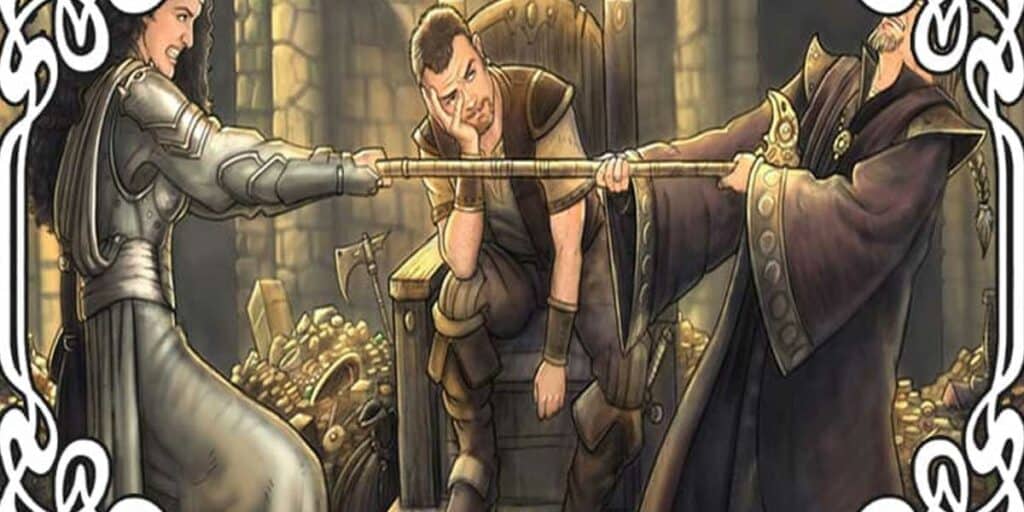
Puzzles are an effective instrument to change things up on your players for 2 reasons:
- Puzzles and riddles are”metagamey”: Ordinarily, whenever your party experiences a mystery, the 20 Intelligent Wizards are not likely to be worse or better compared to the 6 Intelligent Barbarians. Puzzles allow the breaking of character and for all to contribute.
- Combat and Role-playing are often solved via rolling dice, but puzzles and riddles aren’t: It would not be quite a good mystery if your party tactically fix the mystery. The players might need to use their creativity and collaboration to resolve the mystery.
How to Run Puzzles Efficiently
Puzzles are tough to get right in DnD 5e. The machine gives players much liberty; it is easy for gamers to get sidetracked on irrelevant information. This liberty could also provide players with all the perfect spell or ability to skip the mystery entirely. The three legislation of puzzle making which we have explained below, will help you to get other players to participate in your puzzle without losing interest in it.
3 Legislation of Puzzle Making
Let us break down these in much more detail; the Three Laws of Puzzle Creating are as follows:
- Thou Shalt Make Puzzles Obvious
- Thou Shalt Create Alternatives to Thy Puzzle
- Thou Shalt Not Make Puzzles Reliant On Rolls
1. Thou Shalt Make Puzzles Obvious
Players ought to know when they’re walking right into a mystery game. They need to also know which sort of mystery they’re walking into. When developing a mystery for your party, you need to ensure that since the party experiences the mystery, they’re mindful of what is confronting them. This is vital since, as stated earlier, puzzles reveal a players personalities and therefore need to be prepared to change their mentality.
Another factor which will make the puzzle experience successful is making the purpose of the mystery clear. Thinking back to a few of the greatest mystery dungeons ever made, the end of Harry Potter and the Philosopher’s Stone is a great framework to mention for this.
Before entering the dungeon, the trio has their end purpose in mind: stop “Snape” from accessing the Philosopher’s Stone. They also know that a lot of professors have pitched in to keep the rock concealed.
When it concerns the individual puzzles, the objective is clear: move ahead into another area. On the other hand, how they are introduced with each one of those puzzles makes the easy job of getting in the next space a struggle. They might need to get the ideal key in a swarm of flying keys which attempts to strike them; they might need to conquer an enchanted chess board, or else they may need to fix a logic puzzle. 1 thing stays constant; they know what the mystery is attempting to do and how to advance through the dungeon.
2. Thou Shalt Create Alternatives to Thy Puzzle
Not everyone’s mind is wired the same. The majority of the time when you produce a convoluted mystery based on a ribbon of logic which you believe is evident, it will go directly over the gamers’ heads.
This might be a significant barrier when you’ve produced a puzzle experience that does not allow your players advancement unless they resolve it. There is nothing worse than your players becoming frustrated and feeling helpless due to a scenario you made.
To avert this, it’s ideal to create optional puzzles. You may be thinking “but that I put as much time into producing the puzzle! I don’t want my players to skip it” While that’s a really good point, DnD is a sport based on providing your players selection. If your players can not work out the mystery they’ve been introduced with and cannot progress from the dungeon for this; it is likely to be an unenjoyable evening.
Rather than making your puzzles compulsory, you may produce consequences or rewards based on how your players approach the mystery. 1 such scenario I made for my players in one of our efforts could have enabled the party to skip lots of experiences and get the drop on the dungeon’s boss. Regrettably, they took one look in the mystery and ran another way. As I mentioned previously, it was somewhat frustrating, but in the long run, DnD is all about giving your players the decision to approach the situation in how that they want.
3. Thou Shalt Not Base Puzzles on Rolls
In case your players need to be successful on an ability or skill test to advance on your mystery, you are doing it wrong.
As soon as your party experiences the mystery, you must give them all the bits they require to finish it. If you are concealing among those mystery pieces behind a Perception or Insight check and the party fails, they will feel cheated. This is because puzzles are supposed to check a participant’s cleverness, not how blessed they are.
While the primary pieces to the puzzle are constantly in plain view, I like to hide signs behind skill checks. I typically construction the tip to two tiers:
- Should they succeed that the DC X capability check, they then get the useful hint.
- Should they fail the test, they are provided with a helpful, more obscure sign.
Also Read:
- DND Armor Enchantments (Homebrew)
- DND 5e Weapon Enchantments (Homebrew)
- How To Play DND On Pc? The Best Apps For D&D
Kinds of D&D Puzzles And Traps
Now that we’ve figured out how to conduct puzzles efficiently, let us take a peek at different kinds of puzzles which you will have the ability to run.
DnD is an interesting game to attempt and finish puzzles, as producing visual strengths may require plenty of time/talent utilizing design software. Most puzzles I’ve seen use the normal verbal description; however, the more complex your mystery is, the longer you’ll need to choose to make certain it’s clear.
Bearing this in mind, here are the broad types that your puzzles will encounter:
1. Combat Puzzles
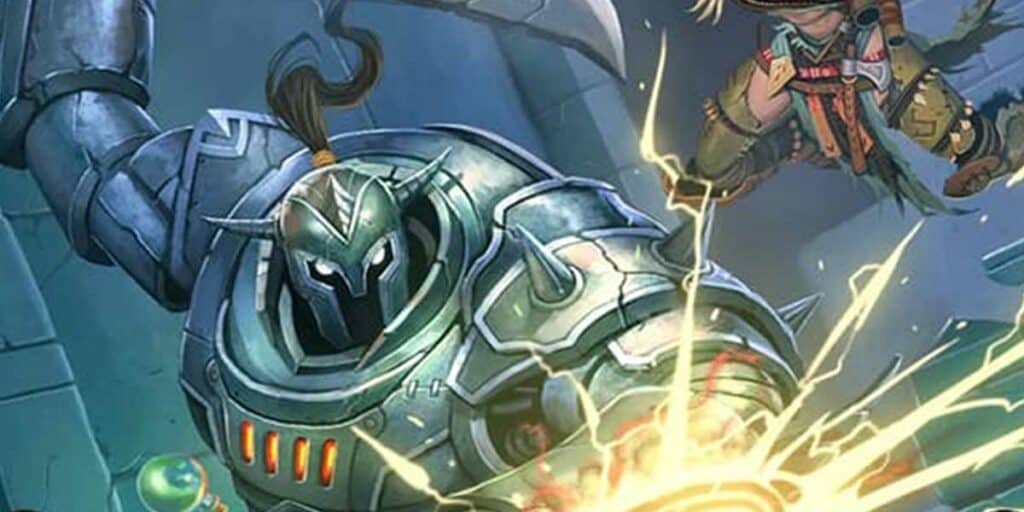
Combat puzzles are a great way to spice up a meeting with a creature. There are many methods to conduct these puzzles; however, the most frequent situation is usually: there’s a large bad man who can not be killed if you don’t determine his weakness.
Nintendo enjoys these kinds of puzzles. In Case You Have played any games like Ocarina of Time, Metroid Prime or even Mario 64 you Will See That most directors typically have 3 identical traits:
- They’re more powerful/larger compared to gamers.
- They’re easily dodged but struck like a truck.
- They are not able to be ruined until you harness their weak place somehow.
2. Logic Puzzles
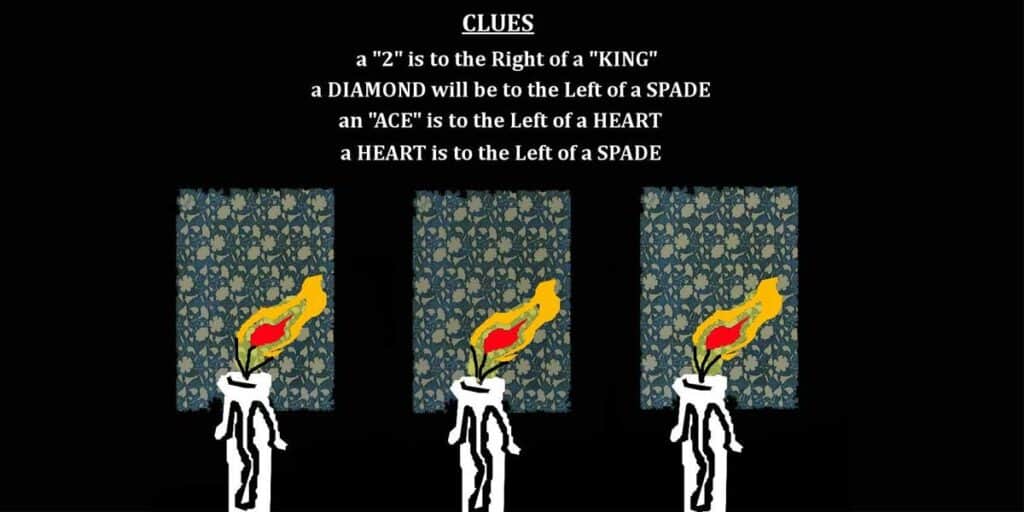
Jigsaw puzzles are puzzles that require using logical deduction to solve.
Jigsaw puzzles don’t rely upon ambiguous or deceptive statements or play on words, as do riddles. With logic puzzles, players are presented with details. From these details, players should create hypotheses and test them till they’re discovered to be prosperous.
An example of a logic puzzle is:
You’re in a room with three chests. You know at least has a treasure, and when a chest does not have any treasure, it includes a deadly toxin.
Each chest has a message on it, but most of the messages are all lying.
Left chest: “The chest has a treasure.”
Middle chest: “These chests has a treasure.”
Right chest: “One of those chests has a treasure.”
Which Chests Has A Treasure?
On account of how logic puzzles could be ambiguous and single-solution oriented, they may get very frustrating for gamers who become trapped. Because there’s sometimes a part of trial and error involved with logic puzzles, it’s a great idea to think of a sensible consequence whenever the party doesn’t triumph.
3. Physics Puzzles
Physics Puzzles utilize the Laws of Physics to make a situation which may be solved by applying fundamental forces of nature like gravity, motion, and thermodynamics.
These puzzles are fairly tricky to pull off and call for a reasonable amount of research before producing but can be quite rewarding and a little more simple for gamers.
When searching for examples of math puzzles, an individual needs to look no further than Portal/Portal 2. The Portal Wiki has a great breakdown of each one the degrees, their puzzles, along with their solutions.
I discover the puzzles are amazing for receiving the whole party involved, unlike riddles and logic puzzles.
4. Riddles
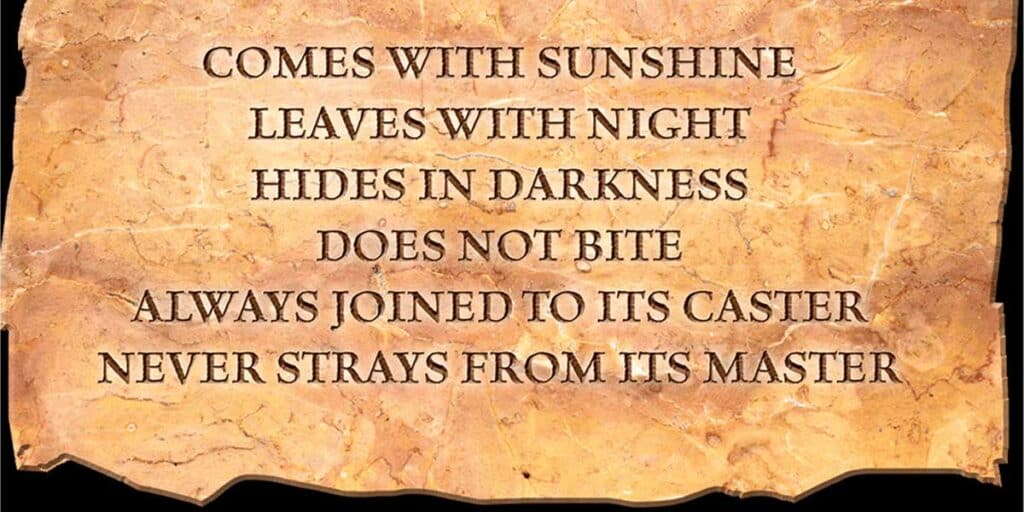
Riddles will be the classic puzzles for DnD. They’re the simplest kind of a mystery to operate, just having a vague query that’s supposed to deceive or mislead the receiver.
The matter with riddles is that they generally only have one correct response. In case your players are not on precisely the same wavelength as possible, it may be nearly impossible to solve the riddle that they have been presented with.
When conducting riddles, it’s ideal for presenting your party a selection. They could listen to the riddle, but should they get something wrong awful will happen. Should they get it right, something good will happen. When they don’t know, they could walk away, and nothing else will happen.
This program has the special capability to reward creativity, discourage rash decision making, and provide gamers with a failsafe, all in 1 situation.
Also Read:
5. Pattern Guessing
Pattern Guessing might seem to be an extremely simple puzzle, but you get back exactly what you put in if you generate these puzzles. DnD has lots of lore which may be utilized to draw upon if coming up with how your routine imagining puzzle will operate. By way of instance, you can employ aspects of Colleges of Magic, Planes, Pantheons, or Old Heroes in your design. The list of items you can use to produce your pattern imagining puzzles unique and interesting is unlimited.
Some Of The Best DND 5e Puzzles
In Dungeons and Dragons, convoluted politicking, in-game role-playing, and Conquer baddies to passing may get rancid for many gamers. A DM must keep their players on their feet with something which may offer a different feel to some dungeon or crypt the party is adventuring through. An excellent means to do that is with puzzles.
Puzzles can reach many different things; they could tell a story, get gamers to consider the essence of an experience, or be enjoyable and entertaining. Through the anals of D&D, some puzzles are reused because of them being versatile and classic. All these 10 puzzles are a number of those great classics that a DM can increase their dungeon.
1. The Count Down

A humorous and enjoyable mystery that is more of a practical joke than anything else. The players stand in a space, furnished with thematic objects chosen by the DM. The more detailed the DM describes the objects, the better. There are 10 to 30 symbols dispersed throughout the head of the door located in front of the players. And in the center of the room, there is a switch placed on a pedestal.
The gamers will trigger the switch, and the area will start to do something ominous as the symbols on the head of the door start to shine one by one. These symbols are just like a countdown since they get to the end of their 10-30 symbols, the doorway will open. Nothing happens, it merely opens, the secret is to earn the players feel something will happen. They will probably talk about what to do and what the symbols mean; they might even go back to town for supplies or rest. The look in their faces as soon as they realize that it was a count down is superb.
2. Plates On the Floor
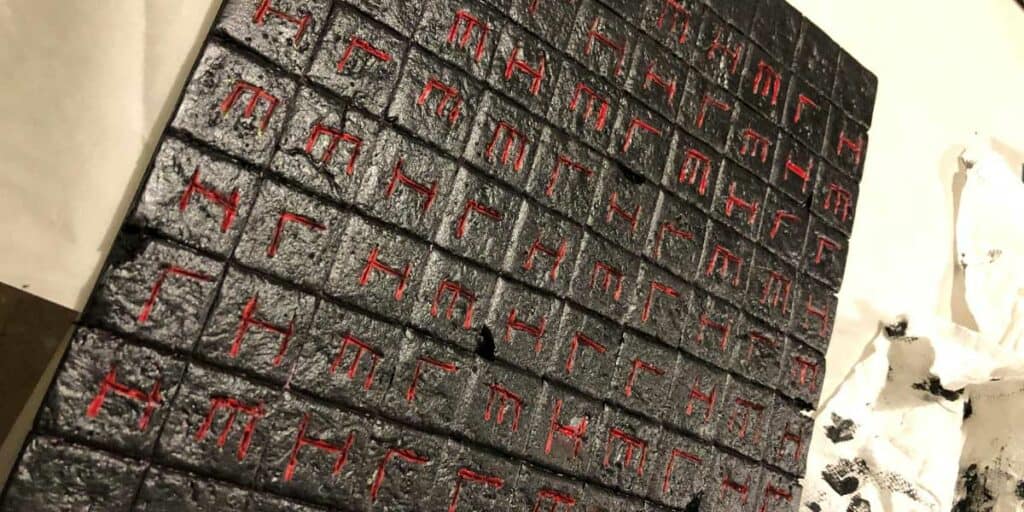
The DM will require a picture or riddle to spell out a route that the adventurers should walk, their route being a collection of trigger plates. The plates are arrayed at a 3×12 routine or something like this. If they fail, whoever steps on the incorrect plate suffers a punishment, damage, or debuff, depending on the DMs instructions. After the adventurers walk the appropriate route dependent on the riddle or puzzle, they clean the region.
A picture of a snake around the ceiling is a good approach to tip the trail. Vindictive DMs can utilize a riddle such as”The quickest way between two things” and observe the players don’t walk in a direct line since the riddle suggests.
3. Judge And Jury
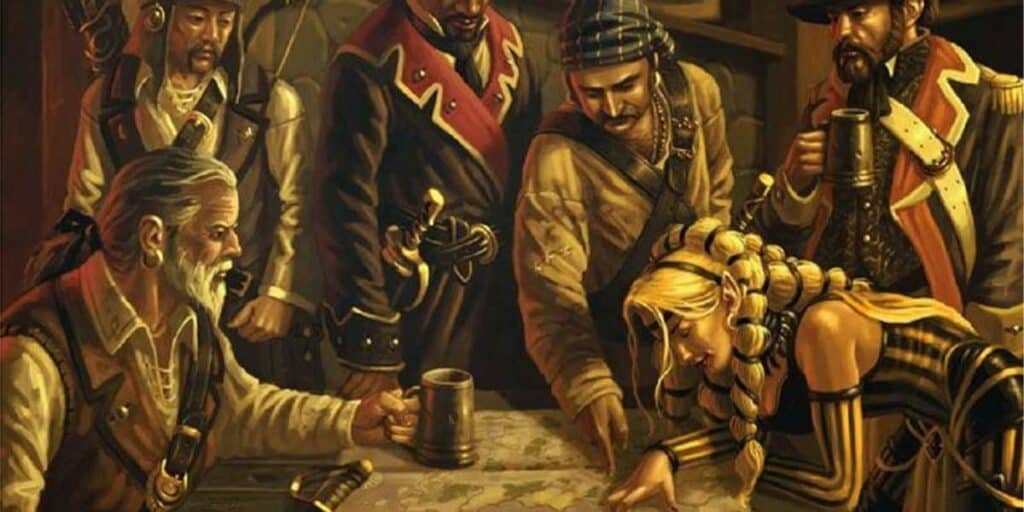
This one may have an assortment of preferences; the crux is that the players must decide who’s guilty of a crime. An individual was murdered, and the suspects will be the parent who’s violent and vulnerable to anger along with a timid servant who’s pitiful and honest. In a city, this is merely a typical moral dilemma. When it introduced as a problem at a dungeon, but it will get a brand new spin.
When the dungeon is aligned with some evil force, the right answer would be to emphasize that the servant is accountable for passing the examination. At a Neutral tolerable place, the solution is that there isn’t enough info to convict either. At a good-aligned location, the parent has to be enticed. Penalty for the incorrect response is up to the DM.
4. That F****** Map
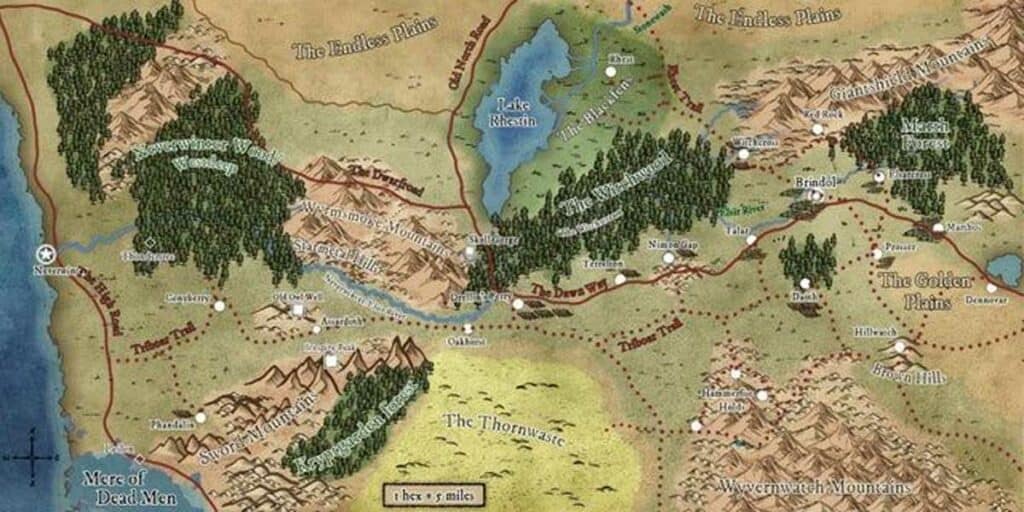
The party will come across a map; this map shows a dungeon in detail, but most of the writing is illegible. After deciphering the legible text, just specific words could be read. Employing these words, the party must determine where the traps have been from the dungeon and in which the treasure.
This can induce the players to consider the context of the phrases used and can be a great deal of fun once the words have several meanings. The DM can become particularly creative for this; what should the map only be read properly if it’s folded in certain ways? This mystery is versatile.
Also Read:
5. Show And Tell

This is only one of the funnier puzzles along with the DM equal of a dad joke. It assumes that there’s a sentence composed somewhere prominent in the mystery space, a massive face carved out of rock is staring in words composed of luminous eyes. Perhaps when the DM is dickish, some items are linked to the sentence at the area but have nothing to do with all the mystery. The paragraph would be”Show Me Just X”, X being whatever the DM wants to install the slot.
An instance is”Show Me Just Wealth, ” and you will find forms of riches across the area. To solve the mystery, the gamers need to cover the sentence with the exclusion of the Xin this situation, riches. In that manner they do as the sentence inquires, they’re revealing the rock face just prosperity.






